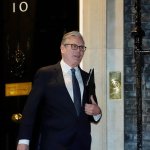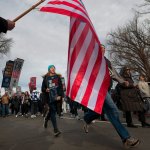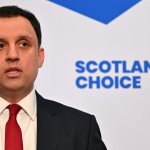Updated: 11.25am
Tánaiste Leo Varadkar has said he expects further Covid-19 recommendations from the National Public Health Emergency Team (Nphet) due to ongoing concern over the Omicron variant.
Mr Varadkar’s comments come as Nphet are due to meet on Thursday morning to consider the current Covid-19 situation.
Currently, the Omicron variant accounts for 14 per cent of Covid-19 cases in the State. Mr Varadkar said he expects it to become dominant as early as next week.
Speaking to Newstalk, he said public health measures and an accelerated booster programme will not be enough to tackle the new variant.
“I would expect on Thursday that there will be some recommendations around management of close contacts, some recommendations designed to decrease the amount of social mixing and also some recommendations around international travel,” the Tánaiste explained.
Mr Varadkar said there was no Cabinet meeting planned for Friday at present, but he believed it was important to give people clarity as quickly as possible – potentially before the weekend.
He added that the pandemic was likely to “go on for several years” but that did not mean restrictions would be needed for that length of time.
Vaccines for children
On the issue of the vaccine campaign for children, the Fine Gael leader said the details were being worked on and it would not be a requirement for children be vaccinated to attend school.
“We will be encouraging parents to get their children vaccinated, it won’t be coercive,” he explained.
Mr Varadkar said Ireland had been in “a slightly better situation than the UK” due to tighter restrictions, however we are now going into a wave of Covid infections brought on by Omicron and the UK is now ahead with their booster campaign.
“Things were going well (in the battle against the Delta variant), but the new variant is likely to cause an additional wave of infections in the next couple of weeks.”
This will require “a change in tack” he said to ensure that the health system can meet the challenges.
With regard to international travel, Mr Varadkar pointed out that the World Health Organisation (WHO) had said travel restrictions were now of limited benefit.
Mr Varadkar added he is in discussions with retailers about the cost of antigen tests and it is hoped the cost could be reduced to a nominal fee of €1-2 per test which had been recommended by the expert group “to avoid waste”.
The situation was constantly changing because of the virus, he said, adding that the Government wants to give clarity and certainty, but that was difficult during a pandemic.
Contingency plans
As further Nphet recommendations are expected, infectious diseases expert Professor Sam McConkey has encouraged businesses to make contingency plans in case the Omicron variant infects staff.
While the new variant appeared not to cause serious illness, he told Newstalk Breakfast that it remained clinically unknown how serious the symptoms could be.
Prof McConkey said he was not in favour of closing down businesses, so was instead encouraging businesses to plan ahead and to have ‘stand-ins’ ready for important roles.
The booster vaccination campaign should also be ramped up, he said, with the large vaccination centres operating 12 hours a day. He added the centres should operate seven days a week, with two shifts of staff.
Prof McConkey also called on the HSE to rebuild the vaccination capacity so “most of the population” could be given the booster within the next 20 days.
The UK was using this strategy, which was the correct one, he said.
In the meantime, people should continue to wear masks, work from home where possible and reduce social contacts, he added. If people were going to meet other households over Christmas they should consider having drinks outdoors, he urged.
Prof McConkey warned that if one person in a household was infected then it was likely that everyone in the household would also contract the virus: “You can’t stop households being households,” he explained.
Making decisions at a time of uncertainty was very difficult for the Government and the HSE, he acknowledged, adding this time of the year was a particular challenge.
Speaking to Newstalk, Leo Varadkar said that as Minister for Trade and Enterprise he didn’t like to see businesses being restricted, having to close or staff having to reduce their hours.
But if it was the case that restrictions were required to protect life and public health “then that’s what we will do.” He said the public would be informed “very soon” about any new measures that could be in place before Christmas.











